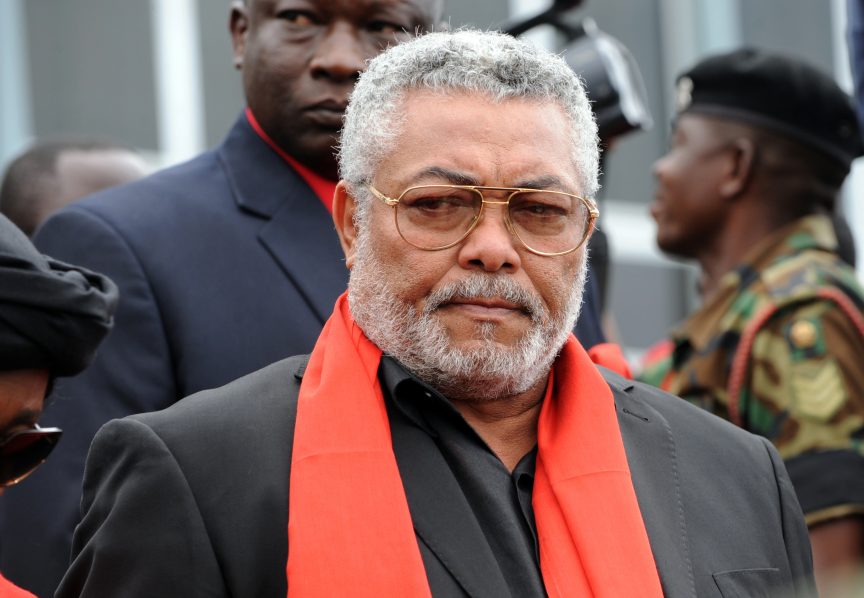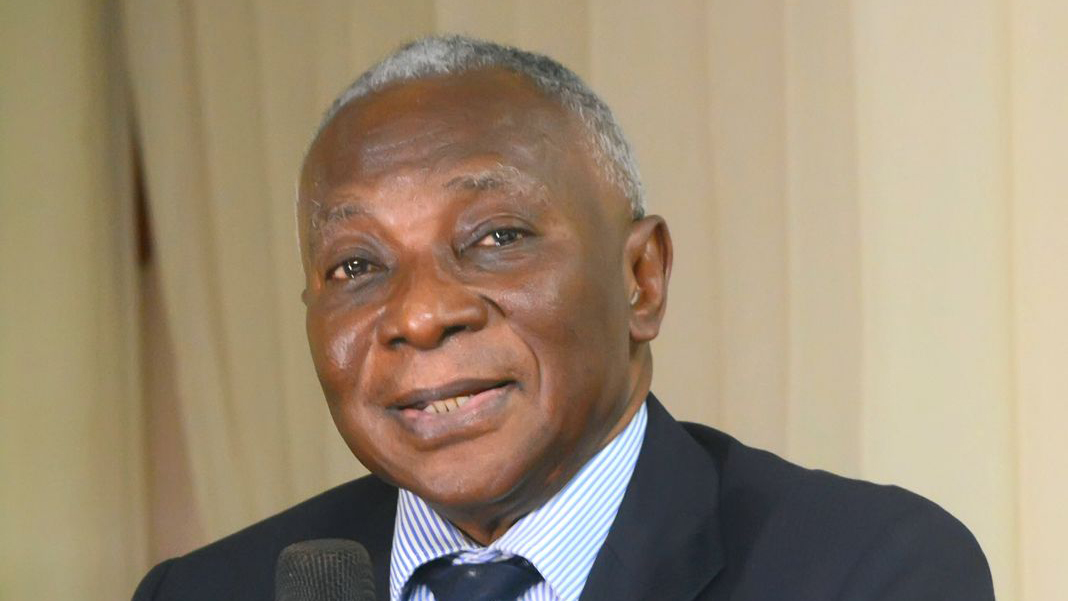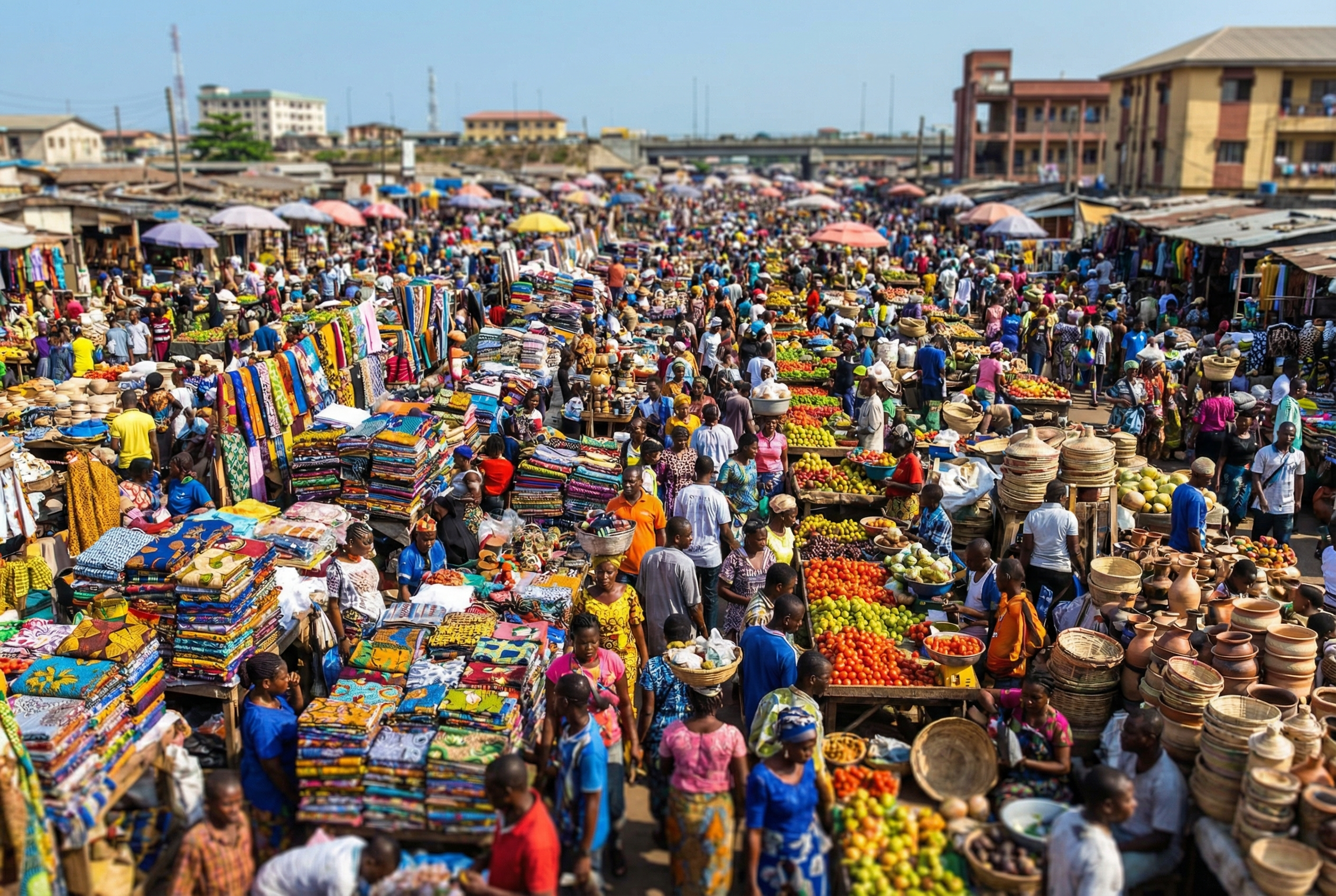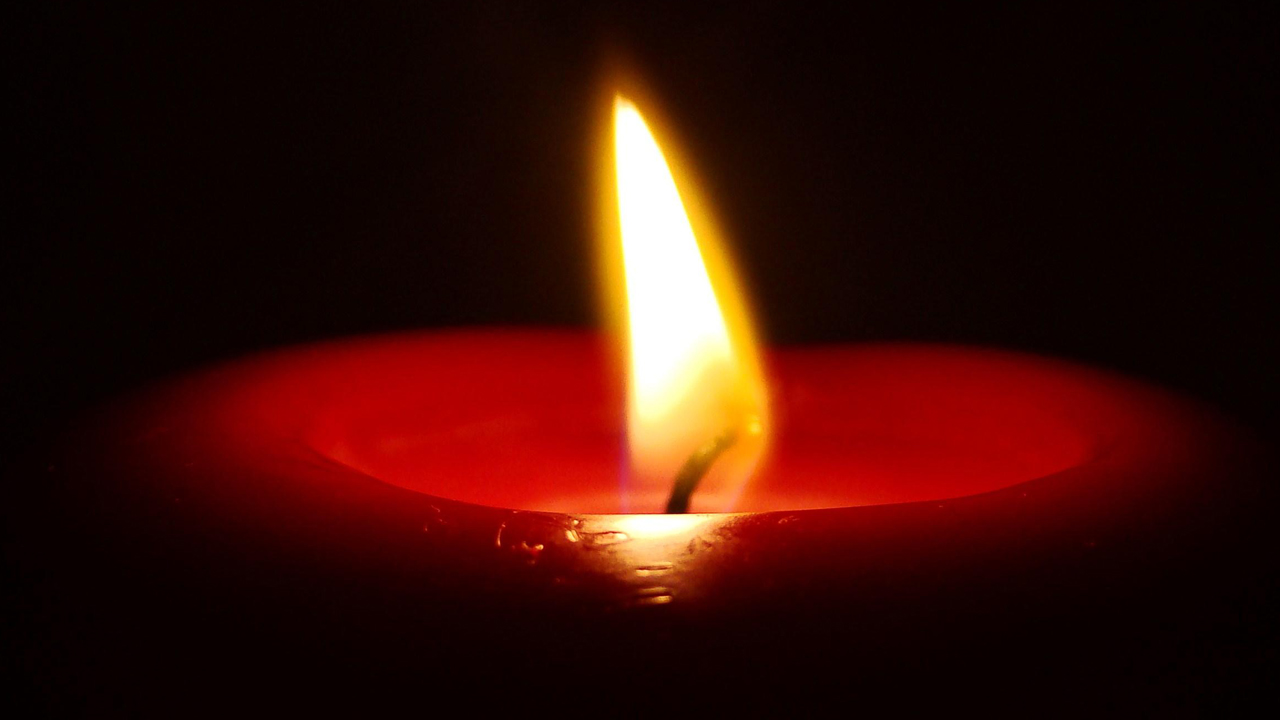
Rawlings’s father was a Scottish chemist who refused to acknowledge his son, leaving a permanent scar that the sensitive Jerry carried throughout his life. His Ewe mother, Victoria Agbotui, died just two months ago at the age of 101.
Rawlings had a solid educational foundation, attending the famous Achimota College: “the Eton of Ghana.” It was here that he met his future wife, Nana Konadu Agyeman, with whom he had three daughters and a son. Rawlings joined the Ghanaian Air Force in 1968, having attended the military academy at Teshie. He was the best cadet, with impressive aerobatics skills, and became a Flight Lieutenant in 1978.
The volatile, charismatic 32-year old officer grew increasingly incensed by the profligacy of the military oligarchy that had ruled Ghana for a dozen years. The locust years of General Kutu Acheampong (1972-1978) during the dark days of Kalabule (corruption) were particularly notorious. The fearless Rawlings had been sentenced to death for attempting to stage a coup d’état in May 1979, five weeks before the return to civilian rule. He was sprung out of jail a month later by fellow junior officers who lined up three former military heads of state – Generals Akwasi Afrifa, Fred Akuffo, and Kutu Acheampong – and five other officers, and executed them by firing squad in a sanguinary “house-cleaning” exercise. This act reverberated across the continent, with Nigeria’s irate Generals cutting off oil supplies to Ghana. Power was transferred back to the civilian government of the lacklustre Hilla Limann three months later.
After two more years of stagnation and drift, Rawlings – nicknamed “Junior Jesus” by his teeming supporters – staged his “Second Coming” with a New Year’s Eve coup in 1981 in which he called for “holy war.” He cultivated the image of an all-action superman and a man of the people: the revolutionary in military khaki cleaned out gutters with ordinary workers; used a hoe to encourage rural people to plant crops; and showed peasants how to fire a gun. As with the 1979 coup, excesses were committed under the young putschists, as three Supreme Court judges and two military officers were assassinated. People’s defence committees acted as youth vigilantes. Amidst allegations of coup plots, opposition figures were imprisoned and securocrats proliferated. This time, Rawlings had come to stay, remaining in power as a military leader for a decade, before transforming into a civilian ruler for another decade.
Rawlings at first surrounded himself with Marxist intellectuals from the University of Ghana. He then attempted – like founding president, Kwame Nkrumah – to carry out a socialist revolution without enough genuine revolutionary cadres. Like Nkrumah, he had widespread support among the urban masses, whom the middle classes dismissed as “verandah boys.” Though market women, youths, farmers and other groups were mobilised, Rawlings found governing more difficult than challenging corruption. The messianic leader discovered that miracles were in short supply. Rawlings launched attacks on exploitative business people, abolished import licences, and introduced price controls. He even razed Makola market to the ground. But this alchemy failed to revive the economy and had instead created a deep financial crisis by 1982.
Like Nkrumah, Rawlings soon discovered the limits of a cocoa- and gold-based economy vulnerable to fluctuations in international markets. As the economy faltered and foreign exchange reserves dried up, Rawlings changed course. The prophet of socialism transformed into the pragmatic advocate of conservative economic policies of privatisation, devaluation, sacking public workers, and removing price controls. Rawlings became a model pupil of the World Bank and IMF’s bitter medicine, and was generously rewarded. By 1989, Ghana was receiving $900 million in economic support as a darling of foreign donors. He, however, also used this money to electrify rural villages, build roads, and subsidise farmers. Ghanaian intellectual, Kweku Ampiah, described Rawlings as “a symbol of development.”
Despite his turn to Western donors, Rawlings, however, tried to maintain a radical Pan-African foreign policy. He was close to socialist fellow traveller and revolutionary, Thomas Sankara, who attempted similar sweeping social change in Burkina Faso over four tumultuous years between 1983 and 1987. Rawlings was also close to mercurial, Afro-Arab revolutionary, Libya’s Colonel Muammar Qaddafi. The Ghanaian leader further maintained close ties with Fidel Castro’s Cuba, to which over 3,000 Ghanaian students were sent.
Rawlings’s greatest achievement will be establishing multi-party democracy in Ghana: ironic for a military man on horseback. Having stabilized the economy, he introduced elections in 1992 in which his National Democratic Congress (NDC) won 60% of the vote against the opposition New Patriotic Party (NPP). But the political system had not yet been liberalised, and the ruling party used its access to state coffers to fund its campaign and increase public service salaries; controlled the media; and curtailed the judiciary and civil society. By 1996, however, Rawlings had relaxed many of these restrictions. He won 57% of the vote, with an impressive turn-out of 78%, compared to 50% four years earlier. Ghana is now renowned as one of Africa’s most mature democracies, with the two dominant parties having transferred power thrice among five leaders in two decades.
Rawlings’s legacy as a Pan-African peacemaker is also secure.
As chair of the Economic Community of West African States (ECOWAS) during Liberia’s civil war in 1994/1995, he deployed Ghanaian troops and bridged the crucial relationship between Nigeria’s Sani Abacha and Liberia’s Charles Taylor, culminating in the end of the civil war by 1996. He thus acted as a “Pied Piper of Accra,” calling the diplomatic tunes to which the warlords eventually danced. He also collaborated closely with Abuja in conflict management efforts that ended Sierra Leone’s civil war by 2000. In his post-presidency, he served as the African Union’s (AU) envoy in Somalia.
Rawlings incredibly remained popular for two decades, and most observers believe that he could easily have won another presidential term in 2000. It is to his credit that he did not attempt – like so many African autocrats – to change the Constitution to run again. Part of his popularity can be explained by how deep Ghana’s rot had become, and how committed he was to social change.
Rawlings, however, also had a temperamental and erratic side. He beat up his vice-president, Kow Arkaah, in a cabinet meeting in 1995. I met him once at an AU-sponsored policy conference in Cairo, and he seemed volatile and talked incessantly and sometimes incoherently. He suddenly broke into dance as we watched a belly-dancer on the cruise on the Nile.
Rawlings will finally be remembered for having rehabilitated the memory of Kwame Nkrumah. In a noble act of national restitution in 1992, he built a bronze statue of Nkrumah in Accra’s Independence Square to honour one of the Black World’s greatest Pan-Africanists whose statues had been destroyed when he was toppled from power in 1966. Both leaders have undoubtedly left the greatest legacy in Ghana.
Professor Adebajo is director of the University of Johannesburg’s Institute for Pan-African Thought and Conversation in South Africa.






